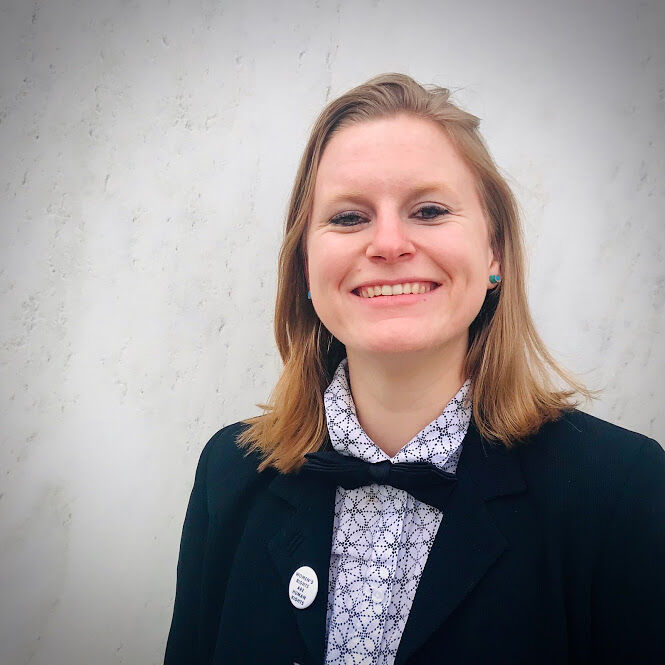Oregon House Bill would require OSU to provide free menstrual products
April 27, 2021
State legislation in Oregon is considering the passing of House Bill 3294, which would require every public education institution, including Oregon State University, to provide both tampons and sanitary pads at no cost to students.
Additional amendments are being considered to include the transgender community in the conversation with installing the product dispensersin the gender-inclusive and male bathrooms as well.
The bill is currently sponsored by Oregon Representative Ricardo Ruiz, Representative Dacia Grayber, Representative Anna Williams, Representative Julie Fahey, Representative Lisa Reynolds, Representative Andrea Salinas and Representative Sheri Shouten. Senator Chris Gorsek also sponsors HB 3294.
At a public testimony on March 16 for HB 3294, Ruiz discussed the inclusivity surrounding the bill, saying that the bill opted for inclusive language wherever possible. For instance, referring to products as menstrual products rather than feminine products and pushing for all bathrooms, beyond just women’s bathrooms, to have available dispensers.
“Not all females menstruate, and not all who menstruate are females,” Ruiz said.
Ruiz also said that legislators have made the request that additional state school funds be allocated to help schools provide these menstrual products.
Although a similar bill, HB 3020, failed to pass in 2019, OSU-Cascades Associated Students of Cascades Campus Director of Student Advocacy Marichelle Gurski said she is pretty confident that the bill will pass this season.
“With the current standing on the bill, it has a lot of pressure from school districts,” Gurski said. “Not just the colleges, but also in the high schools and middle schools.”
Other states have passed similar bills to the HB 3294 through legislation, with California and Illinois being the first states to pass such legislation.
According to students around the United States who responded to a survey done by State of the Period and commissioned by Thinx and PERIOD, one in five teenagers were either struggling to purchase menstrual products or were unable to. Additionally, more than four in five, or 84%, of students in the U.S. have either missed class time or know someone who missed class time because they did not have access to products.
“It surprises me that it’s taken this long to address this issue when it’s so blaring,” Gurski said. “Period poverty is a very real thing, and it really affects students’ performance. Cost is a barrier to accessing menstrual hygiene products, and it’s a basic human right.”
Sallie Mering, a provider for OSU Student Health Services, said via email that she is excited about HB 3294 and that there is growing awareness surrounding period poverty. She said requesting products can be uncomfortable or even traumatic.
“When supplies are limited, menstruators may use products for longer than they are intended or use materials not meant to be placed inside the vagina,” Mering said. “These practices are associated with toxic shock syndrome, which is rare, but can be fatal. Some people without access to supplies may choose to miss work or school rather than risk the — unfortunate — universal shame associated with bleeding through clothing.”
Some of the chemicals and plastic materials found in menstrual products, however, are also an issue of sustainability. Tampon applicators, tampon and pad wrappers, and other such materials take significant time to degrade in landfills; average plastic found in pads and packaging can take 500-800 years to decompose, according to Gurski’s research.
While institutions could opt for lower-cost menstrual products, pulling back on funding for menstrual products could have an adverse effect on the environment when all used menstrual products are accounted for when they are sent to landfills.
On the OSU Corvallis campus, the student organization Period At OSU is working to combat the environmental damage that traditional pads and tampons contribute towards.
“[We] recently hosted an event to make reusable pads that will be donatedtowards OSU’s College of Public Health and Human Sciences personal care baskets,” Theresa Nguyen, president of Period At OSU, said via email. “Reusable pads are made from cloth and collect menstrual fluid. They work like disposable pads, but the wings for cloth pads are fastened with press-studs, buttons, or velcro instead of adhesive. You can toss the cloth pads in the washer or hand-wash them.”
Meanwhile, OSU-Cascades is currently partnering with Aunt Flow under approval of OSU-Cascades Student Fee Committee and ASCC. OSU-Cascades is the first, secondary higher education institution in the state of Oregon to provide free menstrual products to students free of charge.
Although Aunt Flow products are $0.25 compared to $0.17 Naturell products that OSU-Cascades is currently offering in dispensers, Aunt Flow products are completely biodegradable. It is also 100% organic cotton, without synthetics, rayons or dyes, and produces 25% less waste than GUARD Pads.
“When we invest in Aunt Flow products on campus, we invest in a sustainability product, 100% biodegradable in product and packaging and social justice, a company with a mission for equity in our local and global communities,” Gurski said via email. “I think that is well worth an additional eight cents and $3.00 investment per every menstruating student on our campus.”



















































































![Newspaper clipping from February 25, 1970 in the Daily Barometer showing an article written by Bob Allen, past Barometer Editor. This article was written to spotlight both the student body’s lack of participation with student government at the time in conjunction with their class representatives response. [It’s important to note ASOSU was not structured identically to today’s standards, likely having a president on behalf of each class work together as one entity as opposed to one president representing all classes.]](https://dailybaro.orangemedianetwork.com/wp-content/uploads/2025/03/Screenshot-2025-03-12-1.00.42-PM-e1741811160853.png)























